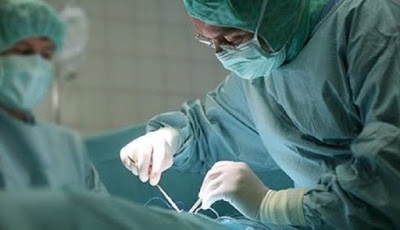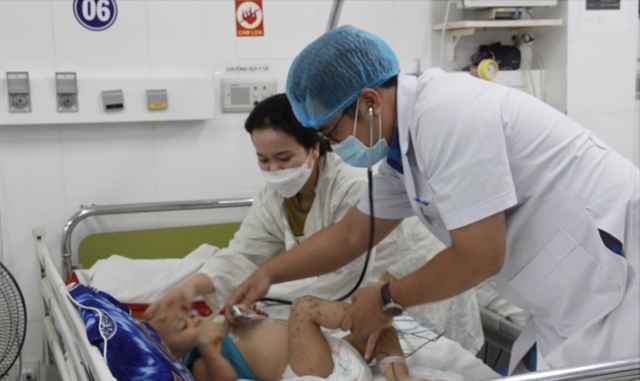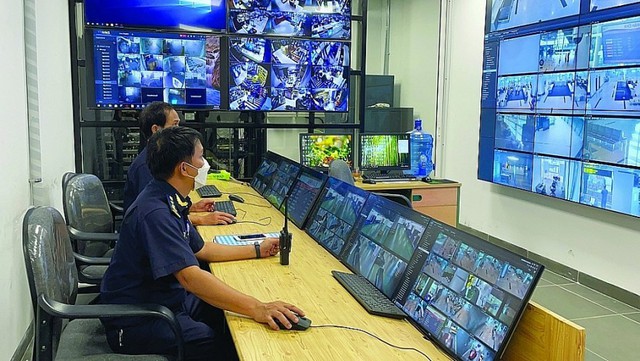 Op-Ed
Op-Ed

A joke about a customer going to a tattoo shop to get tattoos all over her body to clarify the various body parts has gone viral after a series of medical errors involving wrong-site surgeries have recently occurred in Việt Nam.
 |
By Hồng Minh
A joke about a customer going to a tattoo shop to get tattoos all over her body to clarify the various body parts has gone viral after a series of medical errors involving wrong-site surgeries have recently occurred in Việt Nam.
In the joke, the customer rushes to the tattooist asking for indications for her left and right arms, legs, ears - whatever has two sides on her body - so that if she has to undergo surgery, the surgeon wouldn’t work on the wrong side. She still has to think how to tattoo her internal organs.
In reality, surgeons have made vivid and terrifying surgical errors, such as amputating the wrong arm or leg, performing the wrong operation or removing the wrong kidney from patients.
A male patient received the wrong surgery on his left lung due to an X-ray being read wrong. A female patient accidentally had both her kidneys removed instead of only one. Both incidents happened in the Cửu Long (Mekong) Delta province of Cần Thơ several years ago.
Earlier this year, surgeons in the central province of Nghệ An’s Hospital 115 also mistakenly performed an operation on the left hand of a six-year-old boy instead of his right hand, leading the boy to suffer a repeated surgery.
Some people may find excuses for such surgical errors, saying that they are unavoidable given the overcrowding of hospitals and the limited skills and equipment at provincial hospitals.
But last week’s incident where a patient diagnosed with nerve paralysis in his left leg had his right leg operated on instead happened at the prestigious Việt Đức (Vietnam-Germany) Hospital in Hà Nội, and has stirred worries among people.
The 37-year-old male patient from Hà Nội’s Ứng Hòa District had to undergo two further surgeries on both legs afterwards. Even more, after the wrong-footed surgery, the surgeon crew asked the patient’s family to pay an additional VNĐ5 million for the correct surgery to be performed. That caused much anger from the family members and increased the pressure and stress upon them.
In all such incidents, the procedure after the mistake is always an apology from the surgeons and the hospital, and a bit compensation for patients. But such actions will never help make the doubts and anxiety among patients and their relatives fade away.
Should this be blamed on negligence by the doctors and hospitals or on poor qualifications?
The chief surgeon in the most recent incident at Việt-Đức Hospital later admitted he was too subjective and didn’t take a close look at the patient’s medical file before performing the surgery. He only asked the patient and conducted the operation without double checking. And then a tragedy occurred.
Even worse, when the mistake was discovered, the hospital who caused the tragedy issued an inhumane and emotionless request for an additional surgical fee instead of sincerely fixing its own mistake right away.
With the hospital’s long-time reputation in surgery, it’s no wonder many Vietnamese people are just praying for good health and to never have to get an “unfortunate apology” from a doctor or hospital.
Medical errors and complications are inevitable. Professional accidents do happen. And to be fair, errors can occur in all professions. But in the healthcare sector, it is harder to accept errors as all the procedures are related to human life, the most precious good of all. A mistake, no matter how minor it is, can affect the life of both the patient and the doctor. Particularly in surgery, wrong-site, wrong-procedure and wrong-patient errors are already rightly termed ‘never events-errors’ that should never occur and indicate serious underlying safety problems.
If only the surgeons truly cared about their patients, paid more time to learn about the patients’ situation and read their medical file with care instead of just running from surgery to surgery to complete their tasks, such shameful and regrettable incidents might have been avoided.
Patients long for doctors’ hearty care and sympathy, not a healthcare system that blames mistakes on wrong procedures or offers vain apologies once mistakes have already happened. — VNS









